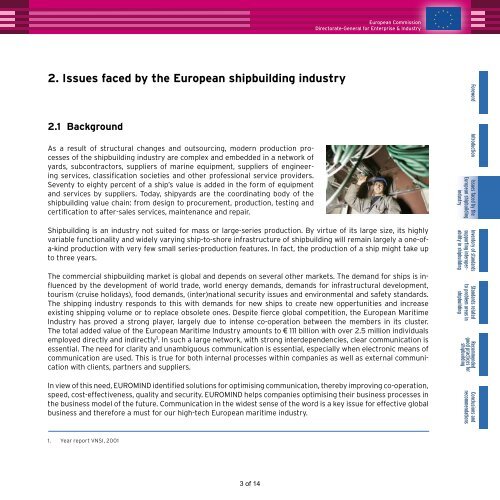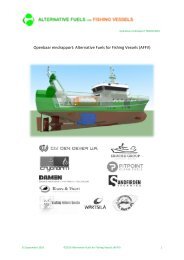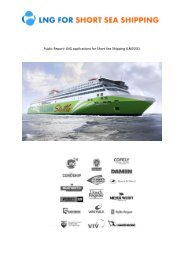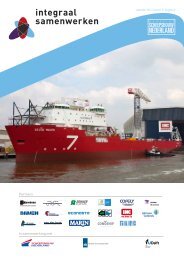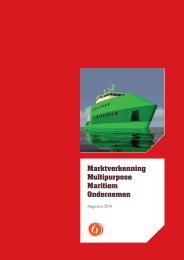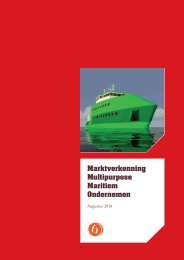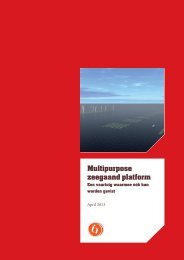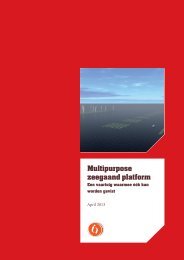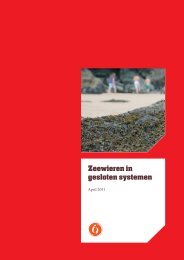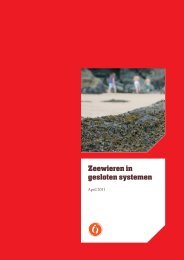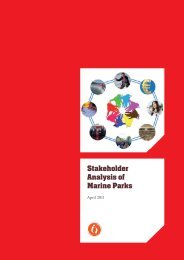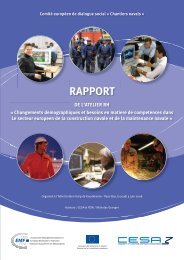Euromind (2009)
Creating an innovative European Open Maritime Industry through facilitating integration of standards into new business practices & services.
Creating an innovative European Open Maritime Industry through facilitating integration of standards into new business practices & services.
You also want an ePaper? Increase the reach of your titles
YUMPU automatically turns print PDFs into web optimized ePapers that Google loves.
European Commission<br />
Directorate-General for Enterprise & Industry<br />
2. Issues faced by the European shipbuilding industry<br />
2.1 Background<br />
As a result of structural changes and outsourcing, modern production processes<br />
of the shipbuilding industry are complex and embedded in a network of<br />
yards, subcontractors, suppliers of marine equipment, suppliers of engineering<br />
services, classification societies and other professional service providers.<br />
Seventy to eighty percent of a ship’s value is added in the form of equipment<br />
and services by suppliers. Today, shipyards are the coordinating body of the<br />
shipbuilding value chain: from design to procurement, production, testing and<br />
certification to after-sales services, maintenance and repair.<br />
Shipbuilding is an industry not suited for mass or large-series production. By virtue of its large size, its highly<br />
variable functionality and widely varying ship-to-shore infrastructure of shipbuilding will remain largely a one-ofa-kind<br />
production with very few small series-production features. In fact, the production of a ship might take up<br />
to three years.<br />
The commercial shipbuilding market is global and depends on several other markets. The demand for ships is influenced<br />
by the development of world trade, world energy demands, demands for infrastructural development,<br />
tourism (cruise holidays), food demands, (inter)national security issues and environmental and safety standards.<br />
The shipping industry responds to this with demands for new ships to create new oppertunities and increase<br />
existing shipping volume or to replace obsolete ones. Despite fierce global competition, the European Maritime<br />
Industry has proved a strong player, largely due to intense co-operation between the members in its cluster.<br />
The total added value of the European Maritime Industry amounts to € 111 billion with over 2.5 million individuals<br />
employed directly and indirectly 1 . In such a large network, with strong interdependencies, clear communication is<br />
essential. The need for clarity and unambiguous communication is essential, especially when electronic means of<br />
communication are used. This is true for both internal processes within companies as well as external communication<br />
with clients, partners and suppliers.<br />
In view of this need, EUROMIND identified solutions for optimising communication, thereby improving co-operation,<br />
speed, cost-effectiveness, quality and security. EUROMIND helps companies optimising their business processes in<br />
the business model of the future. Communication in the widest sense of the word is a key issue for effective global<br />
business and therefore a must for our high-tech European maritime industry.<br />
Foreword Introduction Issues faced by the<br />
European shipbuilding<br />
industry<br />
Inventory of standards<br />
supporting interoperability<br />
in shipbuilding<br />
Standards related<br />
to problem areas in<br />
shipbuilding<br />
Recommended<br />
good practices for<br />
shipbuilding<br />
Conclusions and<br />
recommendations<br />
1. Year report VNSI, 2001<br />
3 of 14


